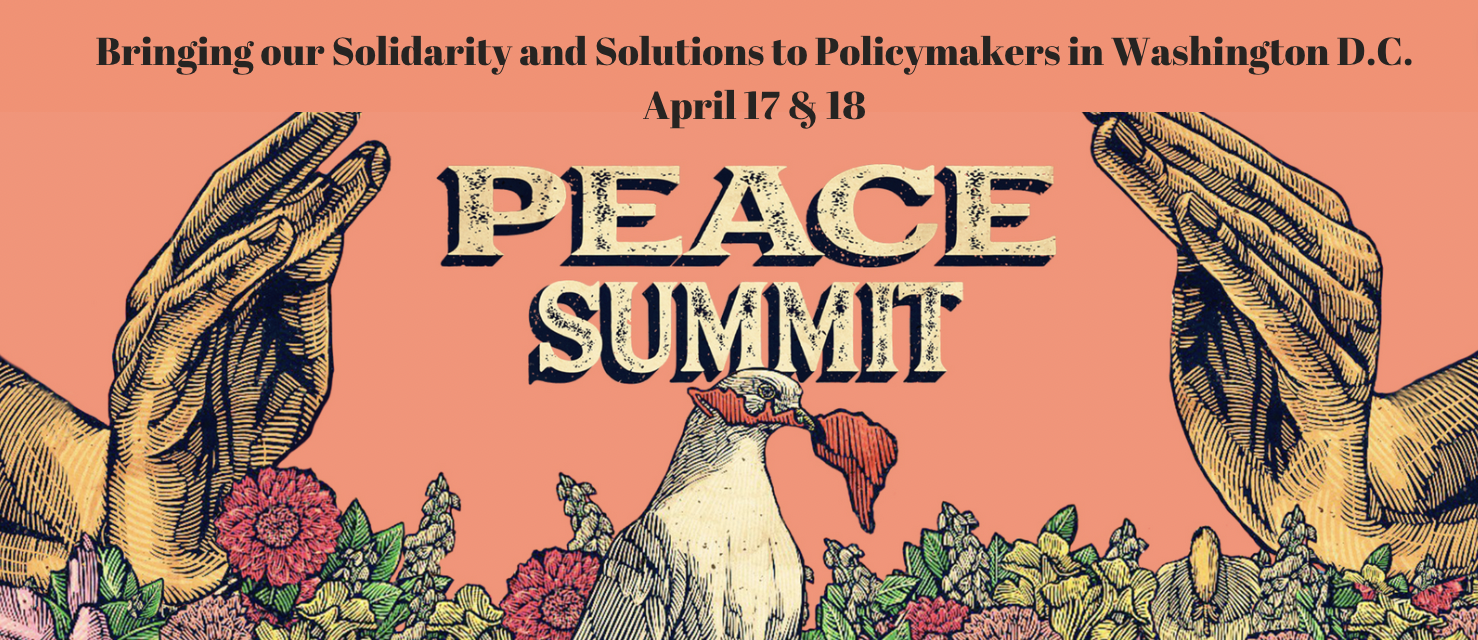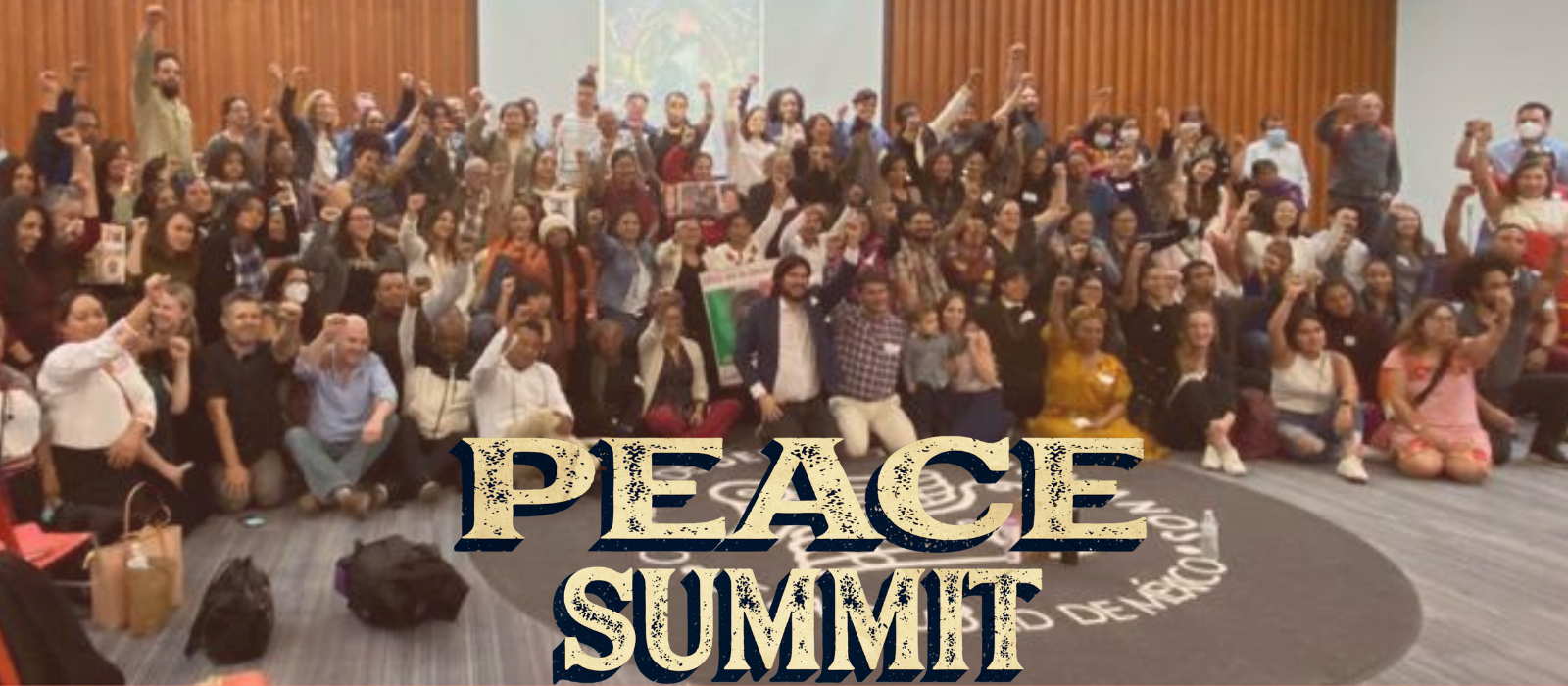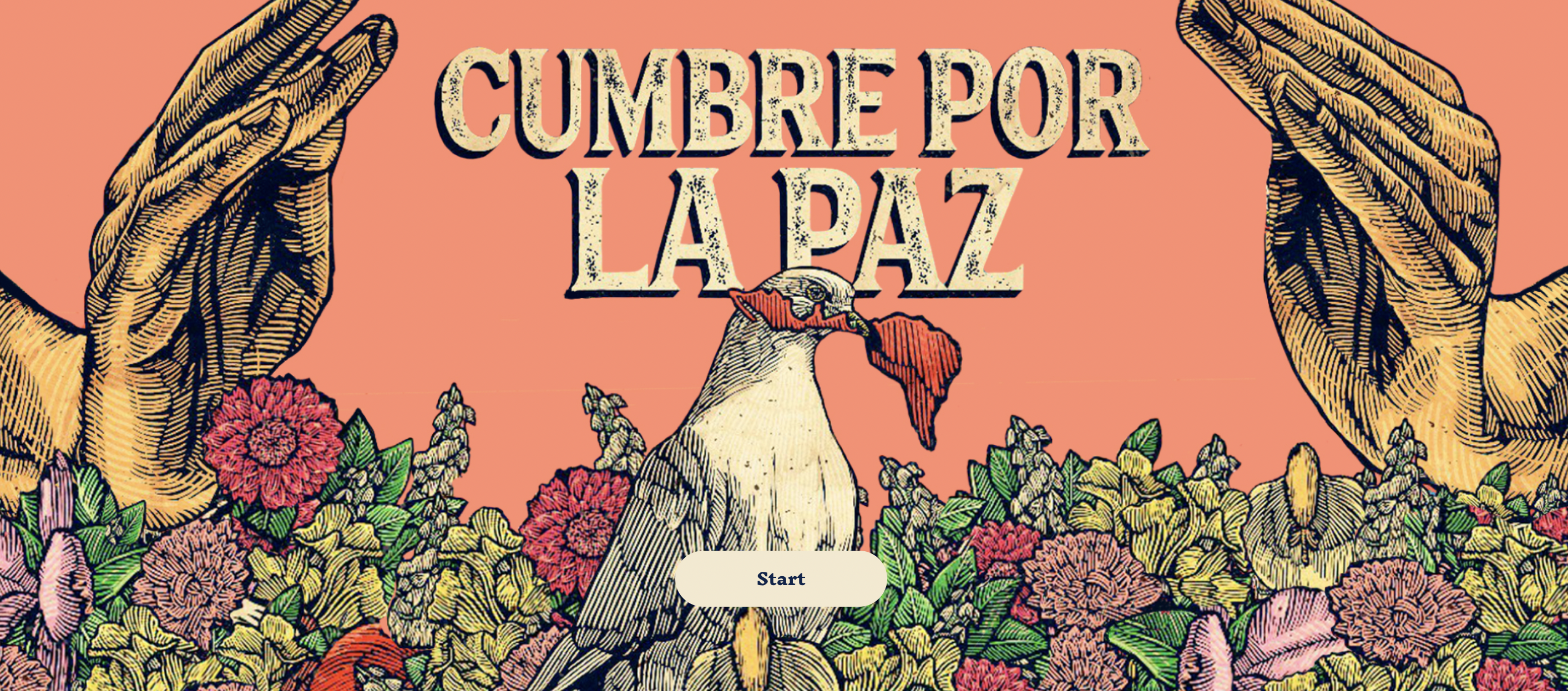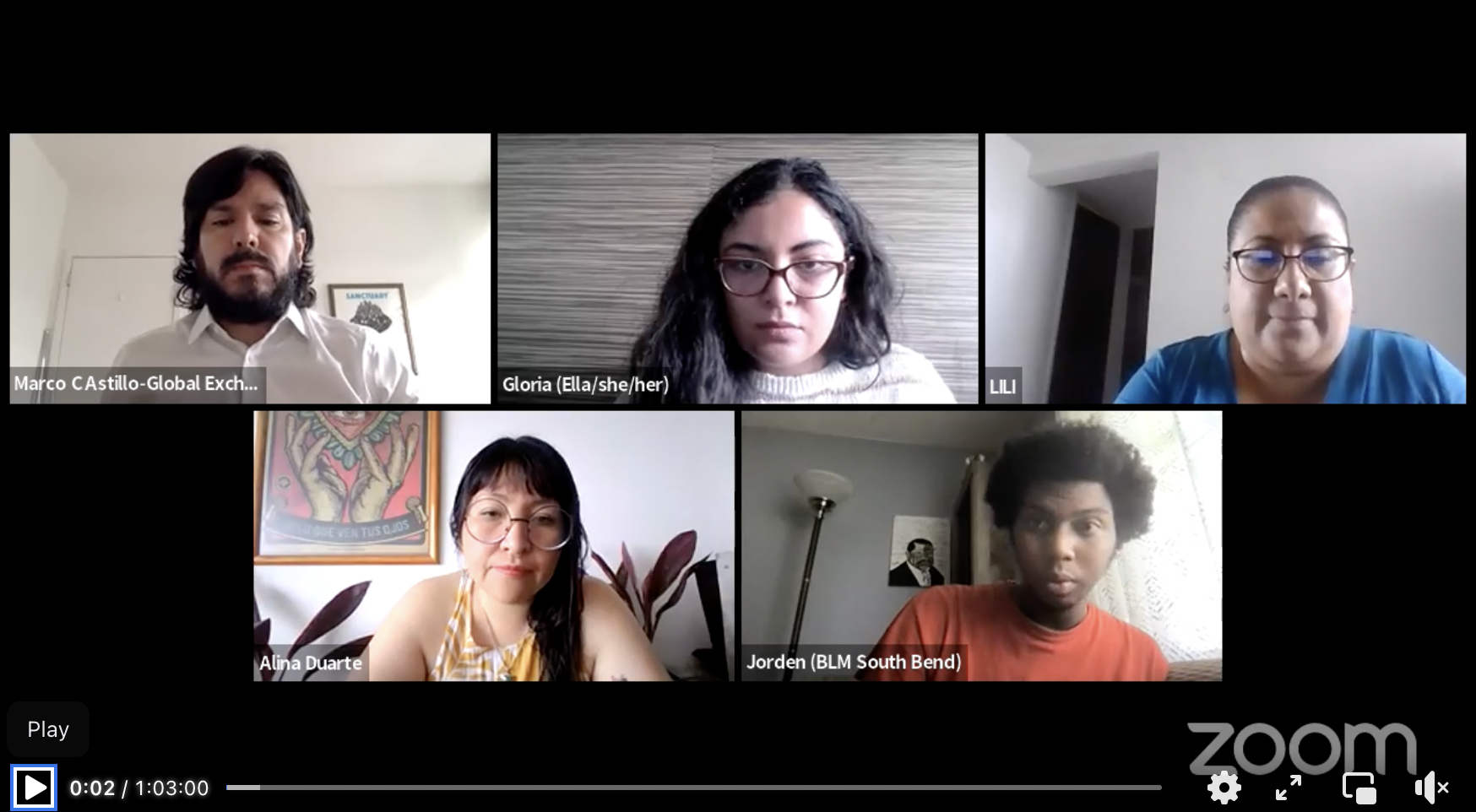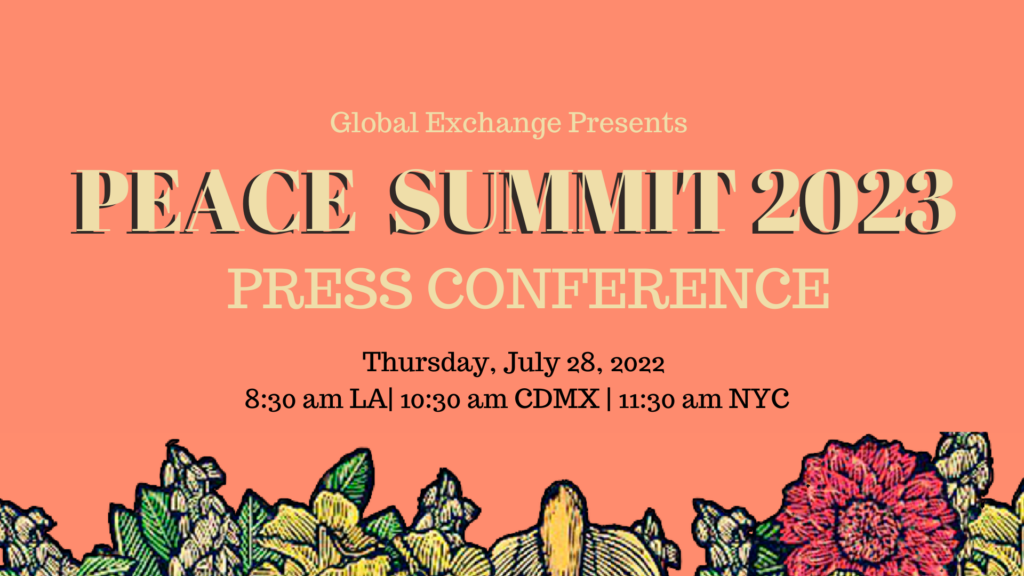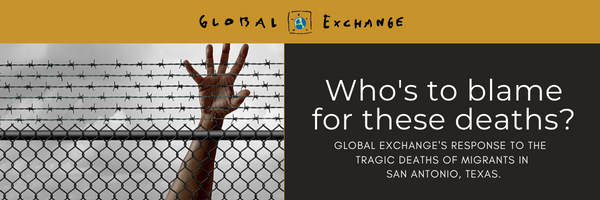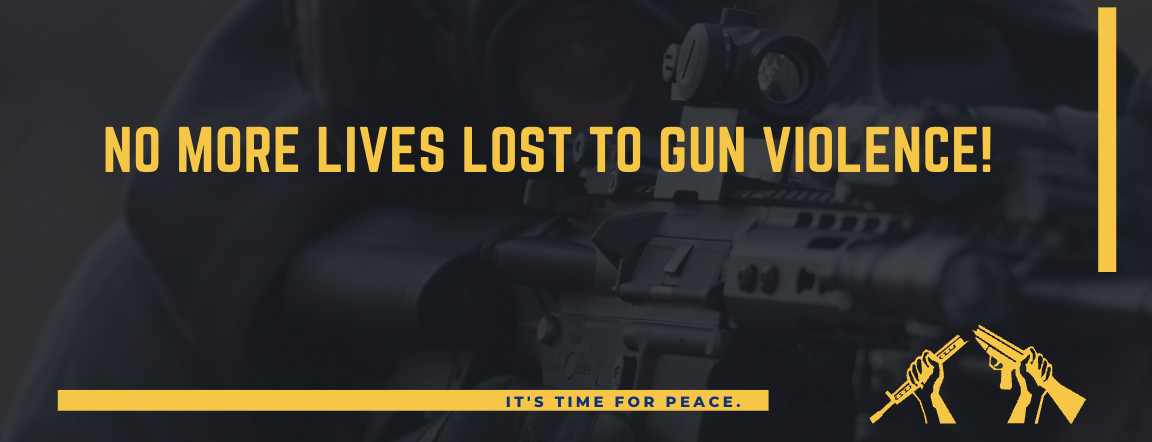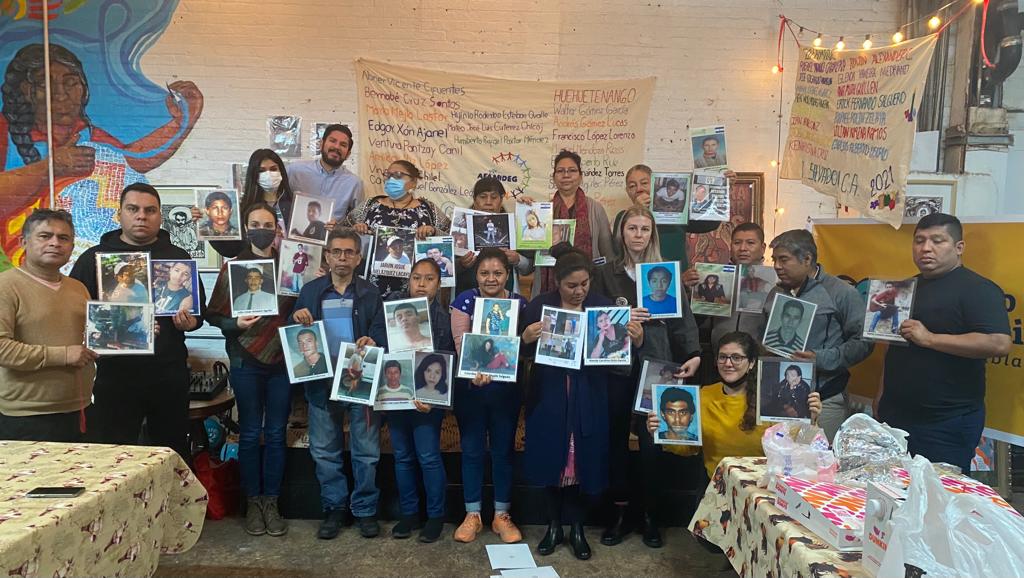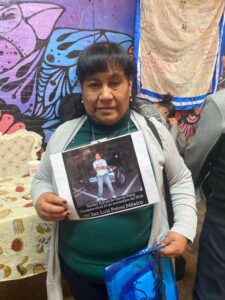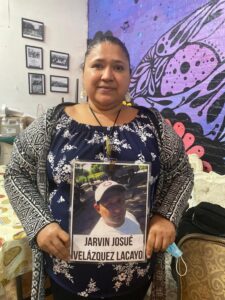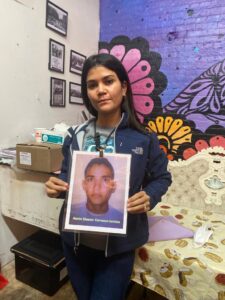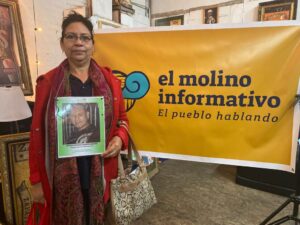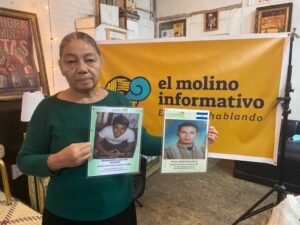
(Español abajo)
Nuestra Lucha Global: Advancing the Power and Reach of Our Global Struggle
Today, we are launching Nuestra Lucha Global: a Global Exchange, Spanish language site to promote international solidarity and justice.
We cannot achieve social, economic, or environmental justice in the Americas unless we include all people in the fight. For more than 30 years, Global Exchange has been at the frontlines of this struggle, and we have witnessed how difficult it is for Spanish-speaking communities to sit at the table with others who do not speak Spanish or our Indigenous languages. As a result, we are continually missing the opportunity to unite.

Nuestra Lucha Global will promote:
- Regional strategic dialogues,
- International delegations of observation and accompaniment,
- Mobilization of resources,
- Amplification of local and regional campaigns,
- Campaigns that advocate for the end of violence,
- Respect for the Human Rights of all people, and
- A just and sustainable economy for all.
Global Exchange – a multicultural, international, human rights organization – is excited to take our vision and programming to the next level and offer all our communications and actions in both Spanish and English.
Nuestra Lucha Global will undertake campaigns and actions dedicated to addressing the needs and priorities of Latinx communities in the U.S. and across the region.
We will continue to hold our annual “Viejos Vecinos, Nuevo Dialogo” (Old neighbors, New Dialogue) webinar series in both Spanish and English, where we will be hearing from leaders in Mexico and the U.S. about their perspectives and analysis of what is needed to put human lives and the rights of nature at the center of the binational relationship.
And as part of the launch of Nuestra Lucha Global, three new delegations have been added to our Mexico Reality Tours Program:
- Mexico-U.S. border annual delegation: where we will see the effects of current immigration policies and learn from the tireless work of dozens of organizations and thousands of volunteers on both sides of the border to protect the lives of immigrant families and asylum seekers.
- Human Rights Delegation: A visit to learn about human rights and justice for victims of armed and political violence.
- The Right to Stay Home: A tour to Mixteca communities, where most agricultural workers and new immigrants to the U.S. come from to escape discrimination, poverty, and violence. The delegation will look to understand how these communities are using migration to resist and establish alternatives to their future.
To further the collaboration between organizations, collectives, and struggles for social justice in Mexico and the U.S., we are organizing a Peace Conference in February 2023 with organizations and leaders from Indigenous, Native American, African American, and Latinx communities from both countries, including: Odilia Romero, from CIELO, Melissa Oakes, from the Northeast Center for Native Americans, Luis Hérnandez from Youth Over Guns, Gricelda Cuecuecha from Culturas del Pasado, and Cristina Bautista, mother of one of the students disappeared in Ayotzinapa, Guerrero, Mexico. In the lead-up to this historic event, we will be promoting local events and webinars to start the regional conversation to advance justice and peace and end violence against the poor and people of color.

We are living in a pivotal and urgent moment. From rising gun violence, political exclusion and disenfranchisement, worsening repression of migrants, and expanding environmental and climate driven crises, the need for action, reform and collective activism is now. Nuestra Lucha Global is dedicated to powering a cross-borders, multicultural, diverse movement for a better future for all. Join us!

Nuestra Lucha Global: impulsando la fuerza y el alcance de nuestra lucha global
Estamos lanzando Nuestra Lucha Global, el sitio de Global Exchange en español para promover la solidaridad y la justicia internacional, así como asegurar que las comunidades latinoamericanas podamos encabezar la lucha global por el futuro que merecemos.
La justicia social, económica o ambiental en el Continente Americano sólo se puede lograr con la inclusión de todas las personas y lenguas de América Latina. Durante más de 30 años, Global Exchange ha sido una organización líder en la construcción de solidaridad global y hemos sido testigos de lo difícil que es para las comunidades latinoamericanas impulsar la lucha por la justicia junto a otras comunidades que no hablan español o nuestras lenguas indígenas. Por ello, estamos continuamente perdiendo oportunidades para unirnos.

Nuestra Lucha Global promoverá:
- Diálogos estratégicos regionales,
- Delegaciones internacionales de observación y acompañamiento
- Movilización de recursos humanos
- Divulgación y difusión de campañas locales y regionales
- Campañas regionales que aboguen por el fin de la violencia, la economía social y sostenible y el respeto a los Derechos Humanos de todas las personas.
El camino para llegar aquí nos tomó casi dos años, donde tuve el privilegio de liderar el equipo de Global Exchange en la revisión de la programación y visión como organización internacional que impulse la multiculturalidad y la inclusión en la lucha por la justicia y derechos humanos. Hemos formado un equipo que nos llevará a crear esta plataforma que se ajuste a la visión de América Latina.
A partir de julio, la mayoría de las comunicaciones y actividades contarán con traducción e interpretación al español. También realizaremos actividades diseñadas y producidas 100% en español para abordar las necesidades y prioridades de las comunidades latinas en los Estados Unidos, y promover la movilización en torno a ellas.
Continuaremos realizando nuestra serie de seminarios web anuales “Viejos Vecinos, Nuevo Diálogo” en español e inglés, donde escucharemos a líderes de México y EE. UU. sobre sus perspectivas y análisis de lo que se necesita. poner la vida humana y los derechos de la naturaleza en el centro de la relación binacional.
También, vamos a organizar tres nuevas delegaciones de observación a México:
- Delegación anual de la frontera México-Estados Unidos: donde veremos los efectos de las políticas migratorias actuales y conoceremos el trabajo incansable de decenas de organizaciones y miles de voluntarios de ambos lados de la frontera para proteger la vida de familias migrantes y solicitantes de asilo.
- Delegación de Derechos Humanos: Una visita para conocer los derechos humanos y la justicia para las víctimas de la violencia armada y política.
- Delegación sobre el Derechos a No Migrar: Un recorrido por las comunidades expulsoras en México, de donde provienen la mayoría de las personas trabajadoras agrícolas y migrantes a los Estados Unidos. Este éxodo busca salida de la discriminación, la pobreza y la violencia, para comprender cómo estas comunidades están utilizando la migración para resistir y establecer alternativas para su futuro.
Para profundizar la colaboración entre organizaciones, colectivos y luchas por la justicia social en México y Estados Unidos, estamos organizando una Cumbre por la Paz en febrero de 2023. Este esfuerzo se encuentra conformado por organizaciones y líderes de comunidades indígenas, nativas americanas, afroamericanas y latinas de ambos países. Contamos con la participación de Odilia Romero de CIELO; Melissa Oakes, del Northeast Center for Native Americans; Luis Hernández de Youth Over Guns, Gricelda Cuecuecha de Culturas del Pasado y Cristina Bautista, madre de uno de los estudiantes desaparecidos en la normal Raúl Isidro Burgos en Ayotzinapa, Guerrero, México. En preparación a este evento histórico, promoveremos eventos locales y seminarios web para arrancar la conversación regional a favor de la justicia y la paz que de pasos al fin a la violencia estructural que impacta principalmente a los más pobres.

La devastación ambiental, la proliferación de armas, la crisis económica profundizada en las comunidades pobres como resultado de la pandemia de COVID-19 y las guerras en todo el mundo solo pueden detenerse y cambiarse con el poder de una ola multicultural, diversa que trabaje unida con un mismo objetivo.
